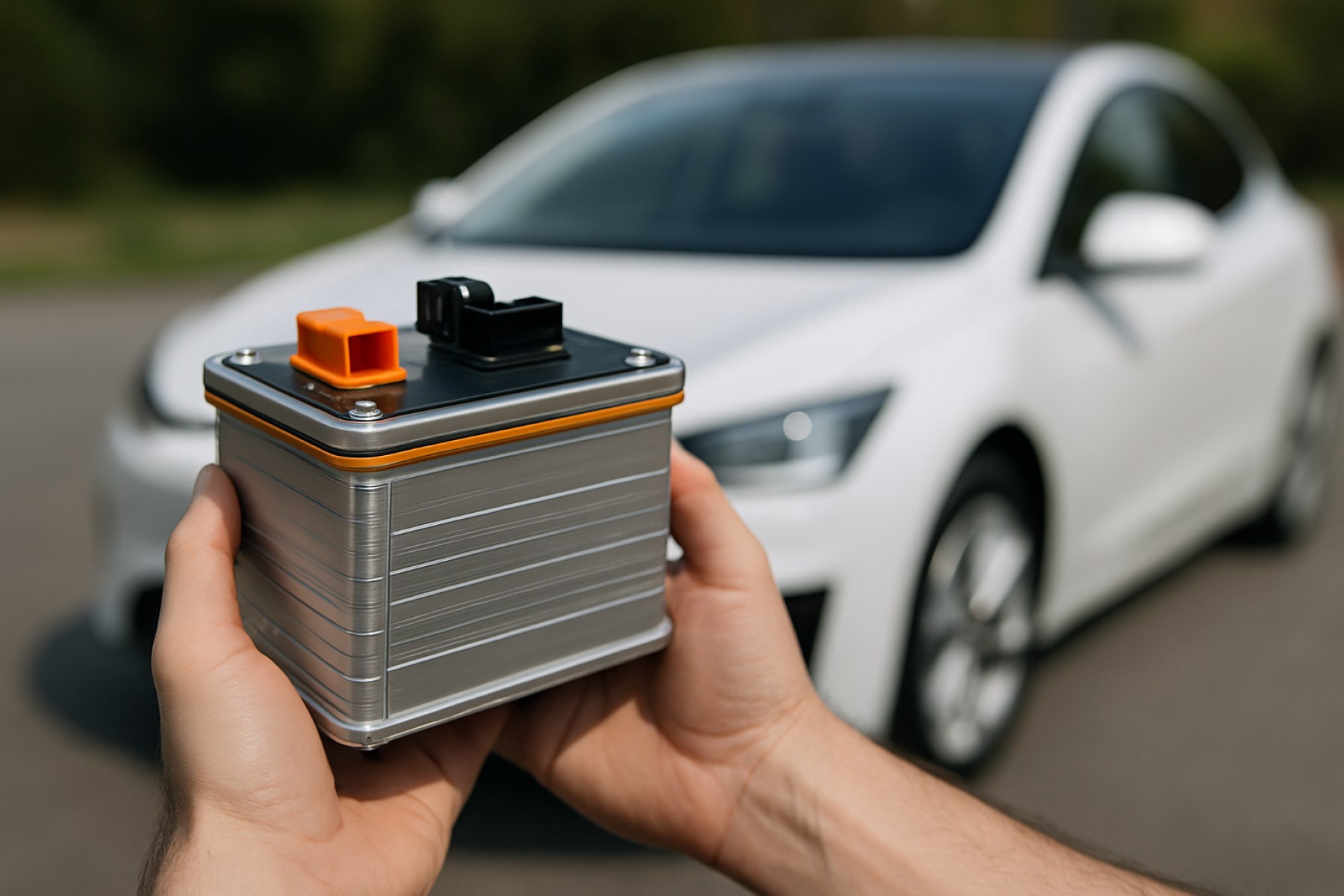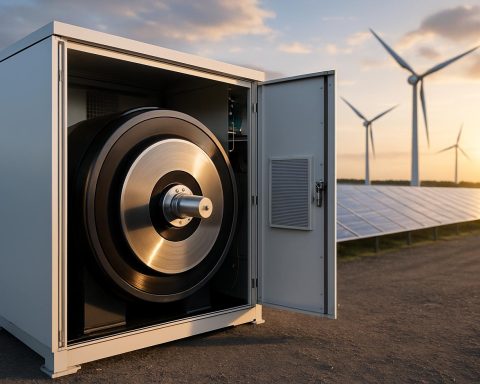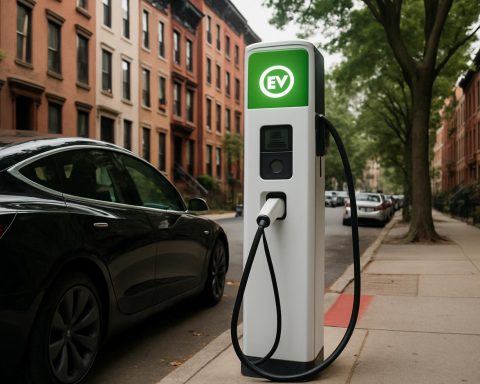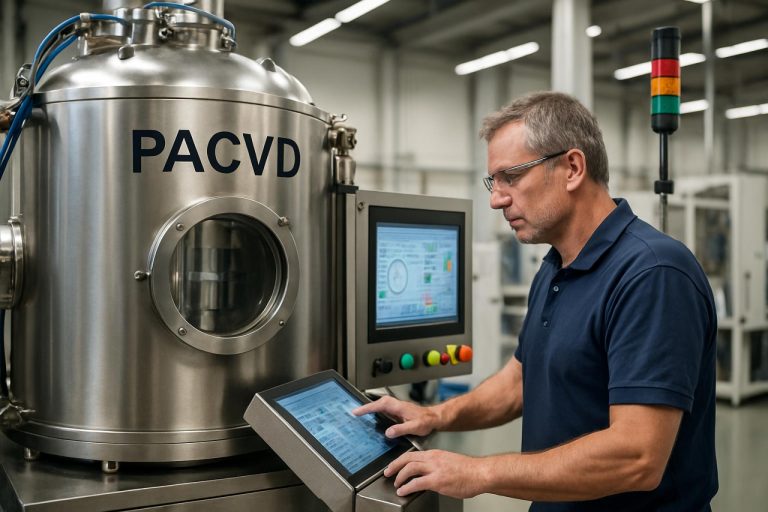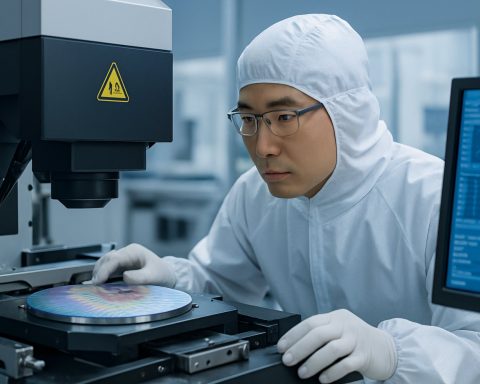- Gotion has developed all-solid-state batteries with a 40% higher energy density than current lithium-ion technology.
- Solid-state batteries are much safer, eliminating risks like overheating and fire through their solid electrolyte design.
- These batteries have passed rigorous safety tests, demonstrating stability under extreme damage and heat.
- Full-scale production is targeted by 2030, with high-end electric vehicles expected to use solid-state cells as early as 2027.
- China is advancing energy leadership by promoting domestic manufacturing and stricter battery safety regulations.
- Solid-state advances could extend EV range past 500 miles, enable ultra-fast charging, and reduce environmental impact.
Sparks of excitement ripple across the auto industry as a battery innovation with the power to redefine electric vehicles surges onto the scene. On the outskirts of China’s fast-growing tech sector, Gotion, a prominent global battery producer, is quietly constructing the building blocks for a revolution that could leave gasoline in the dust.
Gotion has ignited momentum with the unveiling of its experimental production line for all-solid-state batteries—a leap forward beyond the promise of conventional lithium-ion technology. Inside this pilot facility, the company crafts “Gemstone” batteries whose chemistry packs astonishing promise: a 40% jump in energy density. Imagine slipping a battery weighing no more than a loaf of bread into an SUV, confident it holds far more charge than today’s bulkiest power packs.
Science—as much as engineering—fuels the innovation. All-solid-state batteries replace the volatile liquid or gel found inside most lithium-ion packs with a solid electrolyte, drastically reducing risks like overheating, short-circuiting, and the threat of thermal runaway. In Gotion’s labs, battery cells have endured a battery of brutal safety tests: being pierced, crushed, overcharged, and then exposed to punishing heat. Each time, the Gemstone cells stayed stable, hinting at a future where the fiery headlines about EV battery fires fade into memory.
While the factory currently hums at pilot scale, Gotion’s ambitions are anything but small. By 2030, executives say, these all-solid-state packs could roll off production lines at full scale, ready to power next-generation vehicles for the world’s leading automakers. The implications ripple far beyond the company; competitors like CATL and BYD, two more titans of battery manufacturing, are locked into the same deadline, with solid-state cells expected to debut in high-end EVs as early as 2027.
Underpinning these advances is China’s strategic push toward energy leadership. Gotion’s decision to build much of its new plant on domestically sourced equipment signals a bold drive for self-sufficiency. The effort arrives just as the Chinese government prepares new safety regulations set to go into effect in 2026, further raising the bar for what the world can expect from battery technology.
The race is more urgent than ever. Today’s lithium-ion power packs mark only a fleeting chapter in the ongoing saga of automotive innovation. Solid-state batteries may one day push electric vehicle range well beyond 500 miles, charge in minutes rather than hours, and perform reliably winter after frigid winter. And by packing more energy into every kilogram, these breakthroughs could spare valuable resources—and slash emissions across transportation networks worldwide.
For Gotion, now holding over 3% share of the global battery market, these next steps define not just their future, but possibly the future of electrification itself. With pilot lines up and running, and with every safe, powerful Gemstone cell assembled, the company inches closer to making this high-voltage dream a commonplace reality.
Key takeaway: With all-solid-state batteries approaching commercial readiness, the electric vehicle market teeters on the edge of a game-changing leap. Safety, higher energy density, and remarkable resilience—these breakthroughs promise to fuel a new era of clean, reliable, and accessible mobility for all.
China’s Solid-State Battery Revolution: Everything You Need to Know About Gotion’s Breakthrough
Gotion’s All-Solid-State Battery Breakthrough: The Untold Facts, Industry Trends, and What It Means for You
Gotion’s recent strides in all-solid-state battery technology have sent shockwaves through the automotive industry, hinting at a seismic shift that could reshape how the world powers electric vehicles (EVs). While headlines focus on eye-popping stats like the 40% increase in energy density, there’s a wealth of additional information, market insights, and practical implications you need to know.
What Sets Solid-State Batteries Apart?
All-solid-state batteries (ASSBs) like Gotion’s “Gemstone” mark a radical departure from conventional lithium-ion cells. Here’s what makes them different:
– Solid Electrolyte: Unlike standard lithium-ion batteries, which use liquid or gel electrolytes, solid-state batteries utilize a solid ion-conducting material. This eliminates many of the flammability and leakage issues associated with liquid cells.
– Higher Energy Density: Gotion reports a 40% jump, but some experts, like those from Toyota and QuantumScape, forecast solid-state batteries could eventually double the energy density of today’s cells ([source](https://www.catl.com)).
– Rapid Charging: The solid electrolyte allows for faster ion movement, potentially reducing full-charging times to as little as 10–15 minutes in future iterations.
– Longevity: ASSBs tend to have far higher cycle lives (over 2,500–5,000 charge cycles, according to industry research), meaning less battery degradation and lower long-term replacement costs.
– Extreme Safety: Tests demonstrate exceptional resilience to overheating, puncture, and physical damage—addressing public concerns about EV battery fires.
Industry Trends and Market Forecasts
Who’s Competing in the Solid-State Battery Space?
– Chinese Giants: Besides Gotion, CATL and BYD aim to mass-produce solid-state batteries by 2027–2030, following China’s state-supported battery innovation strategy.
– Global Competition: Toyota, Samsung SDI, and QuantumScape in the US and Japan are making parallel developments, with notable investments and partnerships across the automotive sector.
– Market Growth: BloombergNEF projects the global solid-state battery market could surpass $20 billion by 2035, driven by electric cars, e-bikes, and grid storage.
Real-World Use Cases
– Automotive: Longer-range EVs (500+ miles per charge) and faster charging will make electric SUVs and trucks more competitive with gasoline models.
– Consumer Electronics: Lighter, safer batteries in smartphones and laptops.
– Aerospace & Drones: Solid-state’s high energy-to-weight ratio could revolutionize electric aviation and autonomous drones.
Key Features, Specs, and Pricing
| Feature | Gotion Gemstone Battery | Conventional Li-Ion Battery |
|———|————————|—————————–|
| Energy Density | ~360 Wh/kg (Projected) | ~250 Wh/kg |
| Safety | Non-flammable, stable | Risk of thermal runaway |
| Charge Cycles | 2,500+ | 1,000–1,500 |
| Operating Temp | -30°C to 100°C | 0°C to 60°C |
| Charging Time | Under 20 min (future iterations) | ~30–60 min |
| Estimated Cost (2027) | $100–$120/kWh | ~$130–$150/kWh |
Prices are speculative and may drop with scale.
How-To: Transitioning to Solid-State EVs
For Consumers:
1. Research Upcoming Models: Automakers like Volkswagen (partnered with Gotion) and Toyota may introduce solid-state EVs as early as 2027.
2. Ask About Battery Tech: Check future car listings for battery type, warranty, and projected range.
3. Plan for Fast Charging: Future solid-state-enabled charging stations will offer even quicker top-ups—watch for deployments in your region.
Pros and Cons at a Glance
Pros
– Superior safety profile
– Dramatically higher energy density (40%+)
– Longevity and lower replacement frequency
– Wide temperature operating range
– Cleaner, recyclable materials possible
Cons
– Current high production costs
– Manufacturing complexities (scaling from lab to mass-market)
– Early models may carry premium price tags
– Slow commercialization due to supply chain retooling
– Some solid-state chemistries still face dendrite formation challenges
Security, Sustainability, and Regulatory Considerations
– Sustainability: Higher energy density means less raw material per kWh, potentially lowering mining and environmental impact. Easy recycling of solid electrolytes is a research focus.
– Regulation: China’s new battery safety regulations (effective 2026) will standardize and tighten quality controls, increasing global trust in Chinese battery supply chains.
– Intellectual Property & Geopolitics: China’s focus on self-reliance (domestic machinery, in-house R&D) may shift global supply chains and strategic alliances.
Major Controversies, Limitations, and Outstanding Questions
– Manufacturing Scale-Up: Can Gotion and peers move from pilot lines to mass production without reliability or cost setbacks?
– Materials Sourcing: Some solid electrolytes (e.g., sulfides) are hard to mass-produce and may have environmental handling issues.
– Lifecycle Management: Will recycling networks keep pace with new battery chemistries?
Expert Insight: “Compared with liquid-electrolyte lithium-ion batteries, solid-state offers a leap in safety and power,” says Dr. Shirley Meng, UCSD battery researcher, “but getting from the lab to mass production is the final, and hardest, stretch.”
Actionable Recommendations and Quick Tips
1. Stay Informed: Sign up for updates from leading automakers and battery manufacturers (CATL: catl.com).
2. Consider Lifespan: When buying an EV in the next few years, weigh the trade-off between buying now versus waiting for solid-state models.
3. Advocate for Infrastructure: Urge local governments and charging networks to prepare for higher-throughput, solid-state compatible charging solutions.
4. Monitor Resale Values: Vehicles with solid-state batteries are likely to offer better long-term value due to longevity and safety.
Final Thoughts and Prediction
Gotion’s push to commercialize all-solid-state batteries is a watershed moment in the energy transition, poised to unlock a new era of clean mobility and safer, longer-lasting devices. Early adopters may pay a premium, but widespread benefits are set to ripple through markets by 2030—with China, Japan, Europe, and America locked in competitive, innovation-fueled progress.
Pressing Reader Questions Answered
When can I buy a solid-state battery EV?
Most major makers target 2027-2030 for mainstream launch, with initial rollouts in high-end models.
Are solid-state batteries really safer?
Yes; they’re far less likely to catch fire or explode, per extensive lab testing and early real-world pilots.
Will conventional Li-ion batteries become obsolete?
Not overnight—cost and production challenges mean conventional batteries will remain mainstream for several more years, especially in lower-cost products.
Stay tuned—this chapter in clean, reliable mobility is only just beginning!

